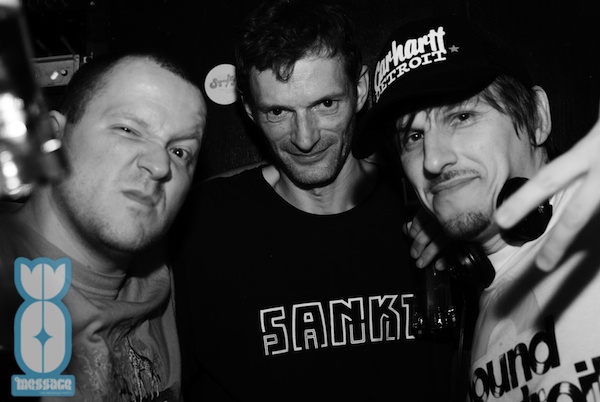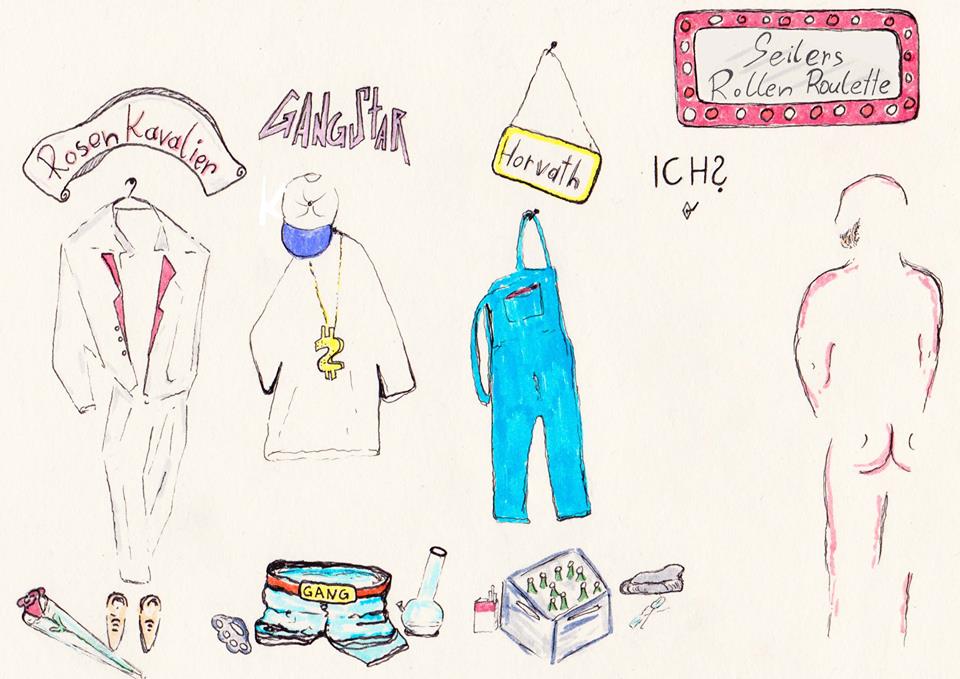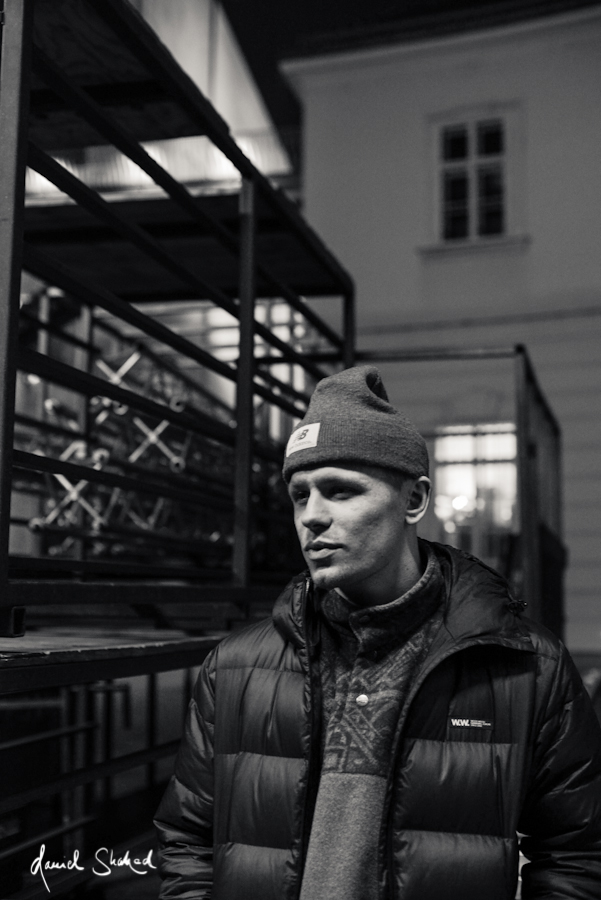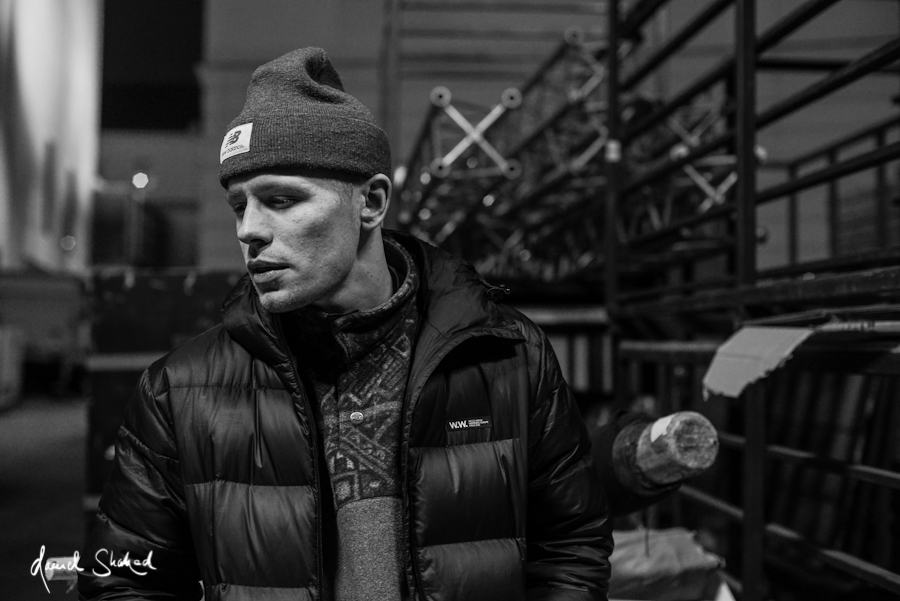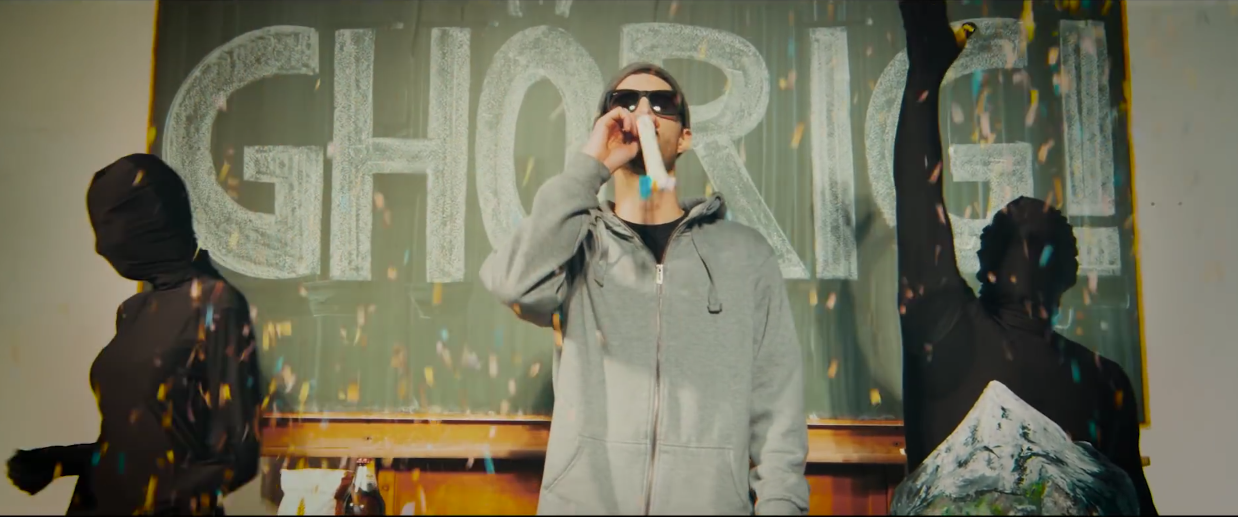Looking For The Perfect Beat
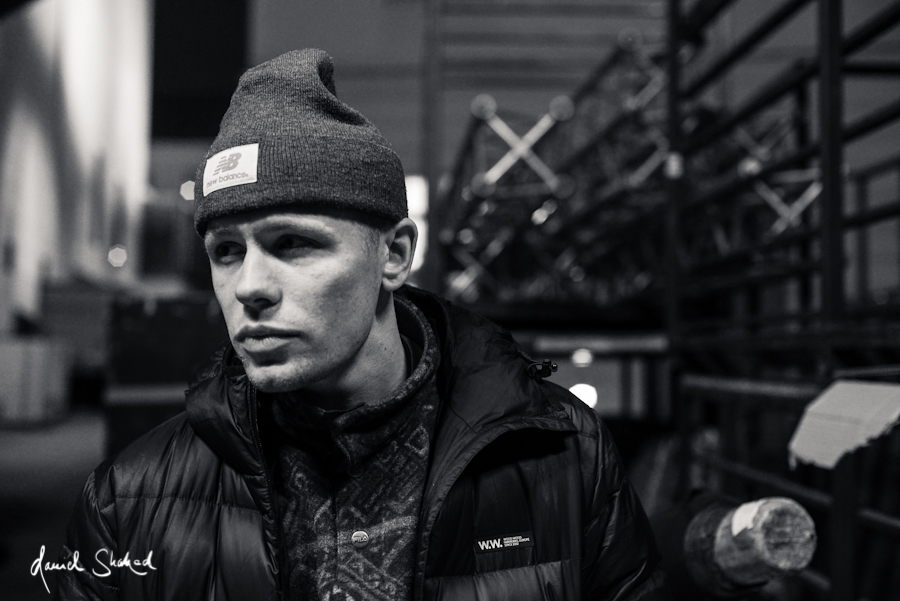
Es ist noch nicht lange her, da wurde aus Ivan Average Ivan Ave. Eine symbolische Verkürzung, wie er selbst in einem Interview erzählt – als Zeichen, die eigene musikalische Karriere von nun an etwas ernster angehen zu wollen. Nach jeweils zwei Alben mit Mutual-Intentions–Kollege Fredfades bzw. Stones-Throw-Associate MNDSGN und einem fixen Signing bei Jakarta Records, scheint der – in Oslo eigentlich als Lehrer arbeitende – frühere selbst ernannte George Costanza der norwegischen HipHop-Szene auf den bestem Weg zu sein. Ivan Ave über Digging, Sampling – und was es sich Schülern wirklich beizubringen lohnt.
Interview: Michael Reinhard
Fotos: Daniel Shaked
The Message: As a rapper you’re referred to as Rakim. He compared himself to a sax player.
Ivan Ave: I try to think of my verses as a solo on an instrument. Good rap is like a jazzy instrument. Natural. Like a jam basically, only with words. HipHop is all I need from different genres – the drums of funk, tonality of jazz or soul even the raw sound of punk – you can borrow all these vibes from different styles of music and combine them. I am not one of these rappers who writes a 16 full hard bars. I need a beat that expresses what I am trying to say before I say it. I usually have some ideas and lines that I wanna use and when the right beat comes my way I will put that on there.
Is this be a reason, why you are rapping in English? Because of the sound?
No, there are many good Norwegian rappers who really manage to use the language to its full potential. And they make it sound good – but I have always wanted to be able to do this also outside of Norway. Luckily I have family in the US and spend a lot of time there. I just never wanted to limit my music to being understood only within Norway.
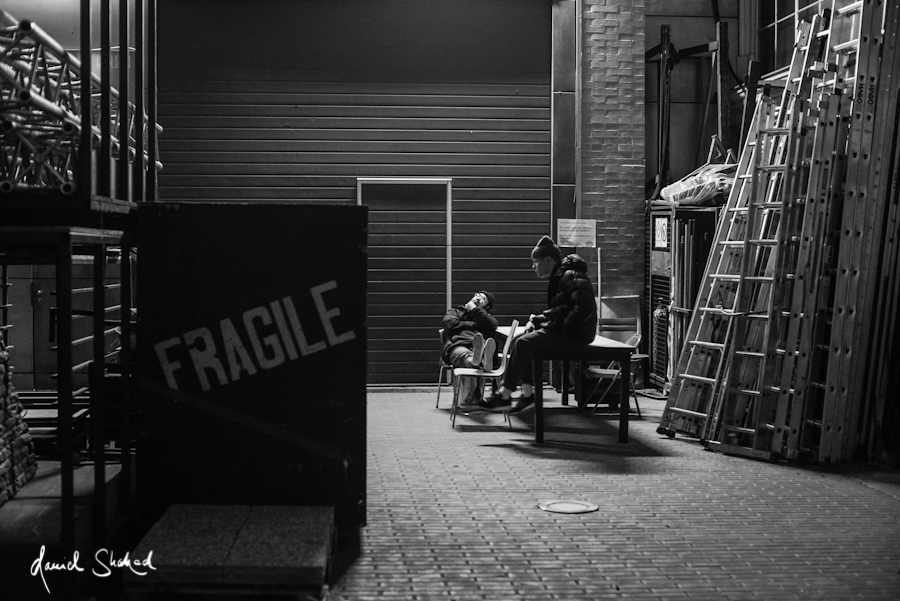
After productions with your Mutual Intentions homie Fred Fades, you just released your second collaboration with MNSDGN. How would you describe the vibes on Helping Hands?
Its diverse, a lot of different sounds. I am happy about that. I included pretty much all of my favorite genres of music. So there is jazz in there, 80s boogie, soul, R’n’B references and some 90s HipHop beats. There’s a combination of sampled beats and Ringgo playing the keys. I can’t really pin it down, but it really represents my taste.
I have to ask about that blue college jacket.
I found that jacket in a vintage store after a huge hangover and a show in Paris with Ringgo, last year in May. For some reason I liked those two words together. I started thinking about it’s appeal. It reflected the stuff we’ve already been working on. The main theme on the album lyrically is basically me trying to live with myself, but also being part of a larger group of people. That can mean just me and my circle or it can also refer to being an individual in society. So the „Helping Hands“ title came from that jacket – it’s in the room now drying, because I wore it last night in Berlin.
Is it true you and Ringgo started out with B-boying?
I always try to claim that I came up B-boying, but I stopped telling people – because Ringgo really is still a B-boy – people don’t know. They haven’t seen nothing yet. In Basel he just broke out the wind mill. I am not worried about my HipHop credentials but he is on another level.
MNDSG, der es sich zuvor noch auf der Ledercouch nebenan gemütlich gemacht hatte und mit seinem Smartphone beschäftigt war, setzt sich auf und grinst.
MNDSG: B-boying is a way of live!
Your musical education started with the record collection of your sister and Michael Jackson.
Ivan: And Janet! „Velvet Rope“ (1997) was the album that introduced me to her and there was actually a Dilla joint on it. He never got credited for the Ummah production – but he did a remix. That was his „revenge“. Generally the 90s, R’n’B, the Fugees. It wasn’t like my sister had this whole catalog of music. Maybe like four CDs. We also had some records of Bruce Springsteen, but no record player that worked.
Nowadays you are a passionate vinyl collector. You even picked a few samples for your first project Low Jams. What are you looking for?
Ivan: Some of them yeah, couple on this record, too. I DJ as well. Sometimes I just walk into a store and start flipping through – what looks good I listen to. Or I know about a label or producer or just some instruments that I am looking for. Third way is I am looking for something really specific, a song I wanna play in my DJ-set or a sample for Ringgo to flip. I just wanna blow my mind through finding music and listening to music. That is a big part of my live.
Is Oslo a good spot for digging?
Ivan: Crate digging is not great in Norway generally. But you’ll find a lot of Eastern European jazz, which I am a big fan of. Like from Yugoslavia, Poland, Czech, also some Soviet’s 70s, mostly Fusion stuff. I really love the style because of the disconnect to the West. They’ll have the gear, but they won’t have necessarily heard all the Western music. But this is just my theory! I just like shit that is a little far out and is disconnected from what everybody else is doing. I feel like you can hear the subversiveness of them making this music. Some of these cats in Poland recorded their stuff in churches and it was state funded putting these records out, but you can tell these dudes were not feeling the regime. That’s also a part of digging. If its Brazilian or out of Japan. It’s also a document of that place and that time. It’s more than just the music and taking your mind to another place. I mainly travel to find records or get them on eBay or Discogs. There’s an Record Mania in Stockholm. That’s a good store and they have a really good web store where you can listen to the music.
So being on tour should be perfect for you!
Ivan: We found good stuff in London! In Berlin we had not enough time, but we definitely will spend some time at the Groove Attack record store in Cologne. Traveling is heavy because I am buying almost as much records as I am selling. It’s a circle because these records will turn into the next album.
At the same time you have a job as a teacher. How do you make this work?
Ivan: I am a substitute now so I don’t work as much as I used to. It’s music and arts right now. In the third and 10th grade. I am actually making beats with the 10th-graders right now, teaching them how to sequence.
Are you also dealing with HipHop in school in another context?
I have hope for the future. They see straight through the hypes so I think they’ll be good. They’re not really interested in what I do, but hey were impressed, or maybe just jealous, when I had to take this month of to go on tour.
Is it generally a topic in the Norwegian school system? HipHop is often presented in a bad light in media. They criticize the strong language, promotion of violence, sex and drug abuse. Do you think it is necessary to cover pop cultural aspects in school like HipHop?
Ivan: There is a lot of negative shit in any big music genre. And there is stuff that I listen to that I wouldn’t play for my students. The main thing right now I am concerned with, is how you represent women. Sometimes I have conversations with my students about that. I am concerned even with my own songs. Half of my songs are about women – I mean I am not sure if I’m okey. I don’t use those words but I do objectify to a certain extent. I’m not a woman but I am writing about them and that is essentially a way of objectifying. But there are no clear boundaries. So I guess if anything I just try to make these kids think, then you won’t have to teach them anything else.
MNDSGN: I think profanity is something that people use against something. The real message just gets lost when you reduce it to the words. Like Kendrick – „this dick ain’t free“. If you show that to a kid it’s probably to abstract to understand.
Ivan: I am not trying to be a moralist. They would always say – this is not good, but as long as you are being honest, I don’t know if you can do anything wrong at all. If you are really yourself then who can tell you not to be. All the things people want to keep out of sight – you just make them more appealing. If you take it in, you realize. It’s just a part of youth culture and just needs to be addressed. You might make it lame but at least there will be a balance.
MNDSGN: There always gotta be a balance. Music can easily be really corny too. There can be a great message but the music itself can be terrible. And there is music where the context is not positive at all but the music is incredible.
Ivan: If the music doesn’t back up the message it kinda collapses.
How does the media in Norway represent you as a local artist? Do you get support?
Ivan: I am definitely in a niche. It’s going pretty well in terms of coverage. Whether or not they understand what we do, that’s kind of another question. I’ve done a lot of records and many of them have gotten good reviews. Now I dropped this one in which I really belief in and they give us these chilly reviews. It sounds cocky questioning them but it is strange. Basically you lose all control of how your art is represented in the media. That’s a strange place to be. Many times media is just writing about whatever is hyped. So I started to lose faith in these music journalists. Some dude spends two hours listening to what we spend one and a half year making. It’s weird to talk about media when you are an artist yourself, because it goes so deep in what you really belief in. Your own music your own art, and other people’s art too. I have seen a review – this one dude in Norway gave Kendrick’s latest album 4 out of 6. And I mean if that’s not 10 out of 10 then what?
You have visited LA a few times, you have friends there. Jakarta, your label, is in Cologne. Any plans on leaving Oslo?
It would be easy to give up on your city and just move to Berlin, but I feel right now it’s cool to be in Oslo. There is potential to actually create some change. I would be depressed, if there would be no support from my home city. Some sort of physical reaction to what you do.
Within the years, Jakarta became like a flagship for diverse underground HipHop.
I really respect Jannis and Malte, both of them just genuinely care about music. They are also doing this Habibie Funk Label now, which is rereleasing rare Middle Eastern and North African funk.
I hope they got a lager print this time for your record.
We got 2000, but it’s not limited. To me, when I first signed with them, it just sounded so good to take Low Jams out. There were only 300 copies and it sold out so quickly. Now I am kinda happy with that because it’s rare and we can’t reissue it because it was numbered. I feel bad for the people who don’t own it, but it actually really helps you to build your name. One of the tracks on there is on this record too, pretty much the most popular one. So people will have to buy this one, too.
Ähnliche Posts
- "You have to challenge the society" // Jahson The Scientist Interview
Jahson The Scientist ist ein "Wordsman", der in seinen Ausdrucksformen keine Grenzen kennt. Er ist…
- The Story of a Long Lost Relative // DJ Werd Interview
DJ Werd ist seit Jahren eine Art "graue Eminenz" im deutschen HipHop-Geschehen. Aufgewachsen in San Jose,…
- Interview mit Tokimonsta
Auf Tokimonsta wurde man vor gar nicht langer Zeit nur als wirklich engagierter Hörer aufmerksam.…
Looking For The Perfect Beat



